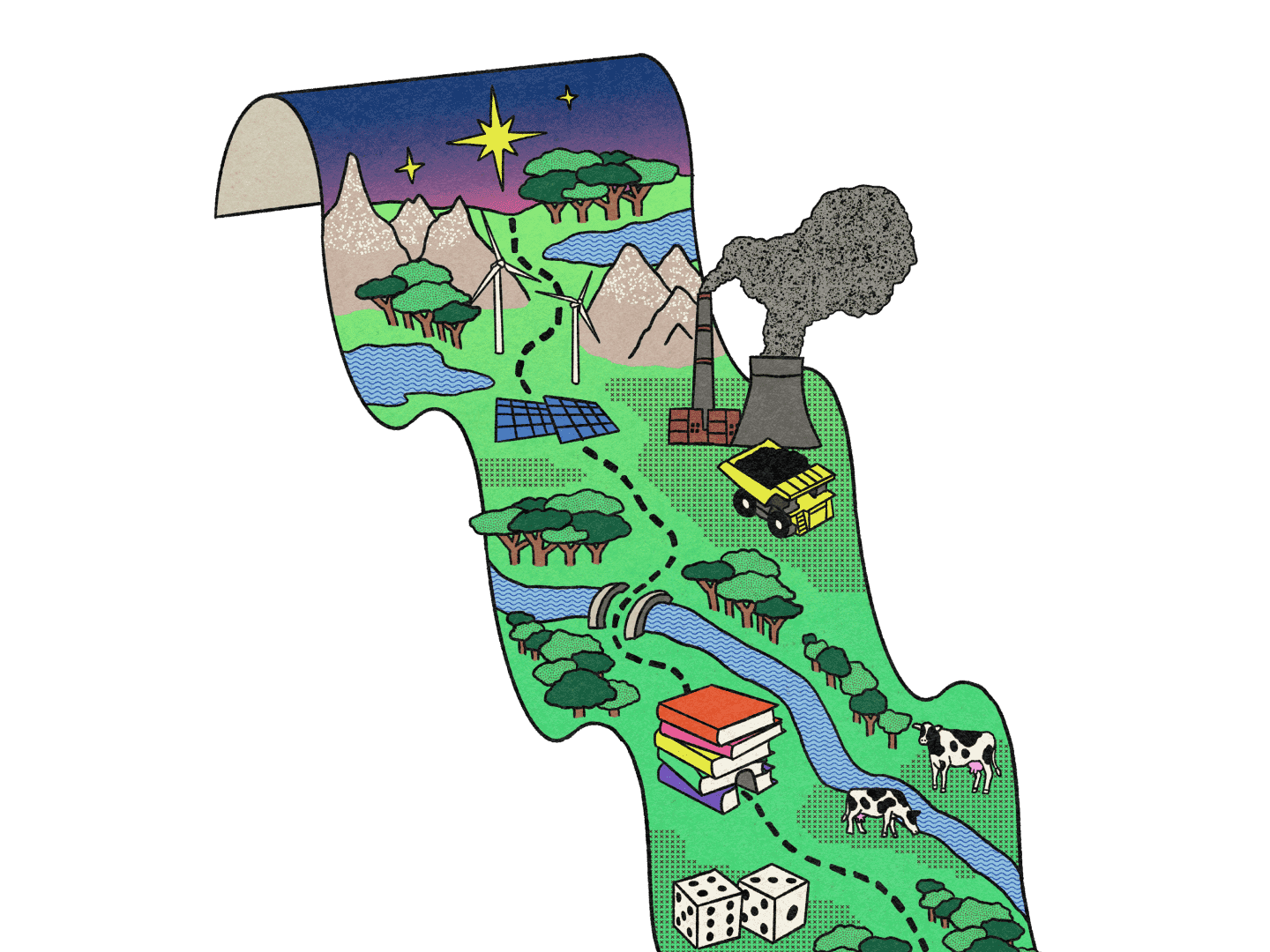23 Ethical Charter principles
Our Charter is the foundation for how we invest and how we’ve always invested. It helps us determine what we support, avoid or restrict+. These principles guide the development of our more detailed Ethical Criteria.


![]()
Positive principles
We seek investments assessed to support:
(a) the development of workers' participation in the ownership and control of their work organisations and places
(b) the production of high quality and properly presented products and services
(c) the development of locally-based ventures
(d) the development of appropriate technological systems
(e) the amelioration of wasteful or polluting practices
(f) the development of sustainable land use and food production
(g) the preservation of endangered eco-systems
(h) activities which contribute to human happiness, dignity and education
(i) the dignity and wellbeing of non-human animals
(j) the efficient use of human waste
(k) the alleviation of poverty in all its forms
(l) the development and preservation of appropriate human buildings and landscape
![]()
Negative principles
We restrict+ investments assessed to unnecessarily:
(i) pollute land, air or water
(ii) destroy or waste non-recurring resources
(iii) extract, create, produce, manufacture, or market materials, products, goods or services which have a harmful effect on humans, non-human animals or the environment
(iv) market, promote or advertise, products or services in a misleading or deceitful manner
(v) create markets by the promotion or advertising of unwanted products or services
(vi) acquire land or commodities primarily for the purpose of speculative gain
(vii) create, encourage or perpetuate militarism or engage in the manufacture of armaments
(viii) entice people into financial over-commitment
(ix) exploit people through the payment of low wages or the provision of poor working conditions
(x) discriminate by way of race, religion or sex in employment, marketing, or advertising practices
(xi) contribute to the inhibition of human rights generally
Aligned with the spirit of the Sustainable Development Goals
In 2015, 17 global Sustainable Development Goals (SDGs) were set by the United Nations General Assembly as a blueprint on how to achieve a better and more sustainable future for all by 2030.
Our founders’ foresight when writing the Australian Ethical Charter means we have been aligned with the spirit of the SDGs for more than 30 years, before they were even conceived.
The letters and roman numerals after each SDG below link to some of the principles of the Ethical Charter which include overlapping concerns for people and the planet.
| Goal 1 |
No poverty (k) (viii, ix) |
|---|---|
| Goal 2 |
Zero hunger (f) |
| Goal 3 |
Good health and well-being (h) (i, xi) |
| Goal 4 |
Quality education (h) |
| Goal 5 |
Gender equality (x) |
| Goal 6 |
Clean water and sanitation (e, g) (i) |
| Goal 7 |
Affordable and clean energy (d, e) |
| Goal 8 |
Decent work and economic growth (a) (ix) |
| Goal 9 |
Industry, innovation and infrastructure (d) |
| Goal 10 |
Reduced inequalities (ix, x, xi) |
| Goal 11 |
Sustainable cities and communities (c, l) |
| Goal 12 |
Responsible consumption and production (b, e) (i, iii, iv, v) |
| Goal 13 |
Climate action (e) |
| Goal 14 |
Life below water (e, g) (i) |
| Goal 15 |
Life on land (e, f, g, i) (i) |
| Goal 16 |
Peace, justice and strong institutions (h) (vii, x, xi) |
| Goal 17 | Partnerships for the goals |
How we invest ethically
We don’t just think about environmental and social harms as investment risk factors. We apply our broad ethical criteria to actively steer capital towards companies that are doing good, and away from those who aren’t.
We believe business impacts on people, animals and the environment are important to consider both for the performance of individual companies, and for the fairness and sustainability of our society and economy.


